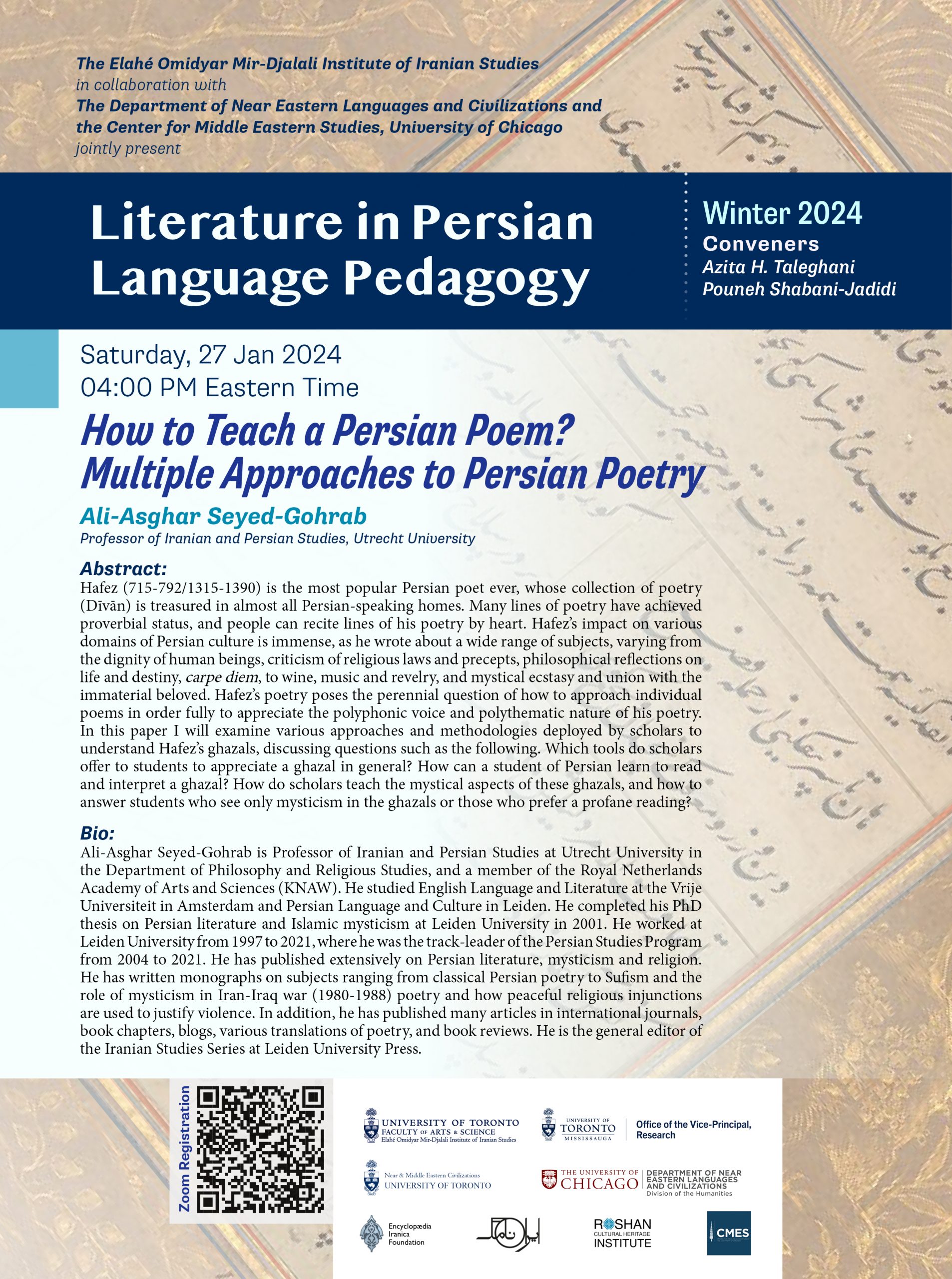

The Elahé Omidyar Mir-Djalali Institute of Iranian Studiesin collaboration with theDepartment of Near Eastern Languages and Civilizations and theCenter for Middle Eastern Studies, University of Chicago jointly presentHow to Teach a Persian Poem? Multiple Approaches to Persian Poetry
Ali-Asghar Seyed-Gohrab, Professor, Utrecht University Saturday, 27 Janury 2024, 4:00 p.m. Eastern Time (Canada and US) Zoom Meeting Registration:https://utoronto.zoom.us/meeting/register/tZAldOiprDouGNLNd16ANiXTiJZab62Er4xq
After registering, you will receive a confirmation email containing information about joining the meeting.
Abstract:
Hafez (715-792/1315-1390) is the most popular Persian poet ever, whose collection of poetry (Dīvān) is treasured in almost all Persian-speaking homes. Many lines of poetry have achieved proverbial status, and people can recite lines of his poetry by heart. Hafez’s impact on various domains of Persian culture is immense, as he wrote about a wide range of subjects, varying from the dignity of human beings, criticism of religious laws and precepts, philosophical reflections on life and destiny, carpe diem, to wine, music and revelry, and mystical ecstasy and union with the immaterial beloved. Hafez’s poetry poses the perennial question of how to approach individual poems in order fully to appreciate the polyphonic voice and polythematic nature of his poetry. In this paper I will examine various approaches and methodologies deployed by scholars to understand Hafez’s ghazals, discussing questions such as the following. Which tools do scholars offer to students to appreciate a ghazal in general? How can a student of Persian learn to read and interpret a ghazal? How do scholars teach the mystical aspects of these ghazals, and how to answer students who see only mysticism in the ghazals or those who prefer a profane reading?
Bio:
Ali-Asghar Seyed-Gohrab is Professor of Iranian and Persian Studies at Utrecht University in the Department of Philosophy and Religious Studies, and a member of the Royal Netherlands Academy of Arts and Sciences (KNAW). He studied English Language and Literature at the Vrije Universiteit in Amsterdam and Persian Language and Culture in Leiden. He completed his PhD thesis on Persian literature and Islamic mysticism at Leiden University in 2001. He worked at Leiden University from 1997 to 2021, where he was the track-leader of the Persian Studies Program from 2004 to 2021. He has published extensively on Persian literature, mysticism and religion. He has written monographs on subjects ranging from classical Persian poetry to Sufism and the role of mysticism in Iran-Iraq war (1980-1988) poetry and how peaceful religious injunctions are used to justify violence. In addition, he has published many articles in international journals, book chapters, blogs, various translations of poetry, and book reviews. He is the general editor of the Iranian Studies Series at Leiden University Press.